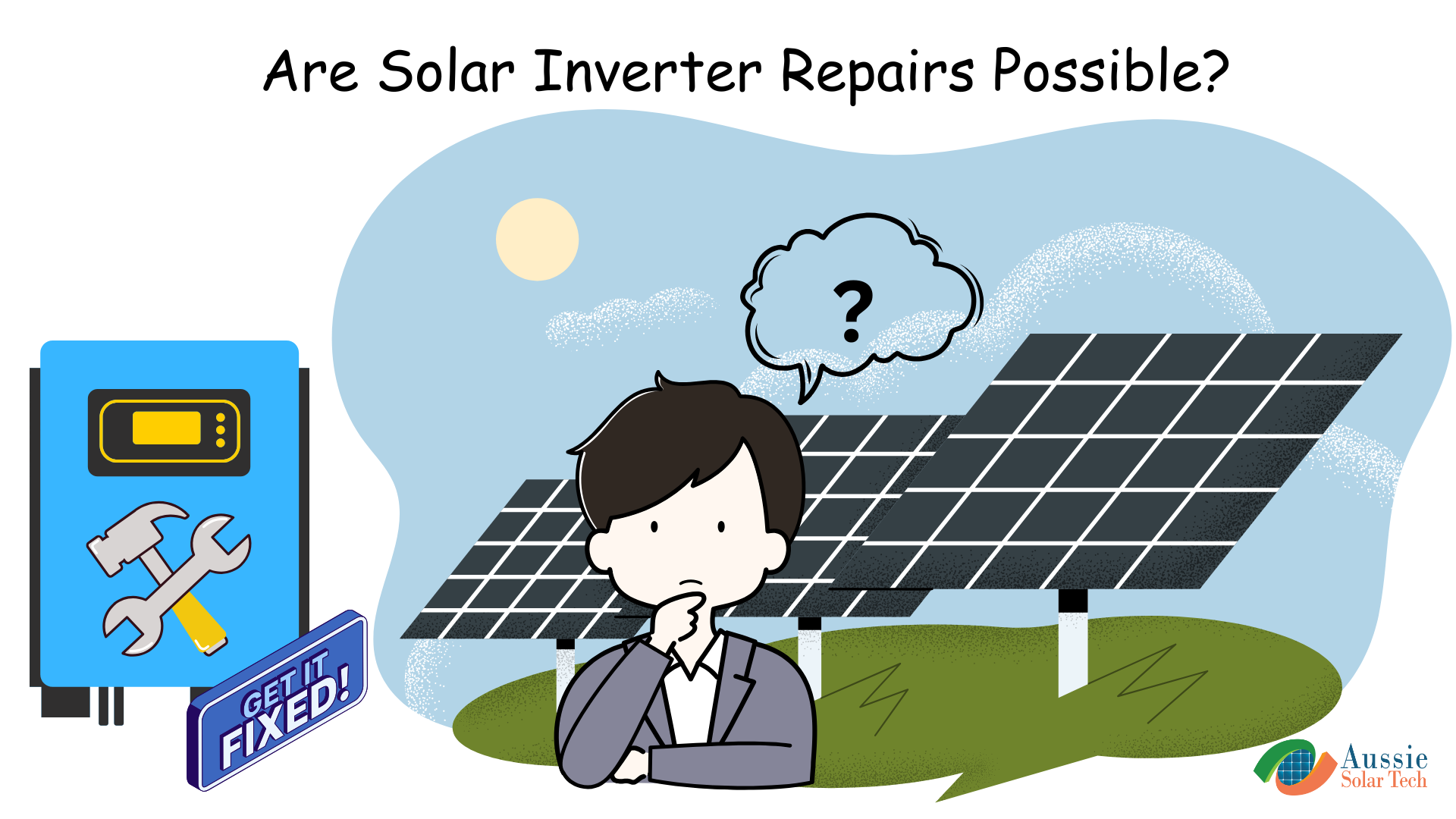The Future of Solar Battery Recycling: Sustainable Solutions for the Planet
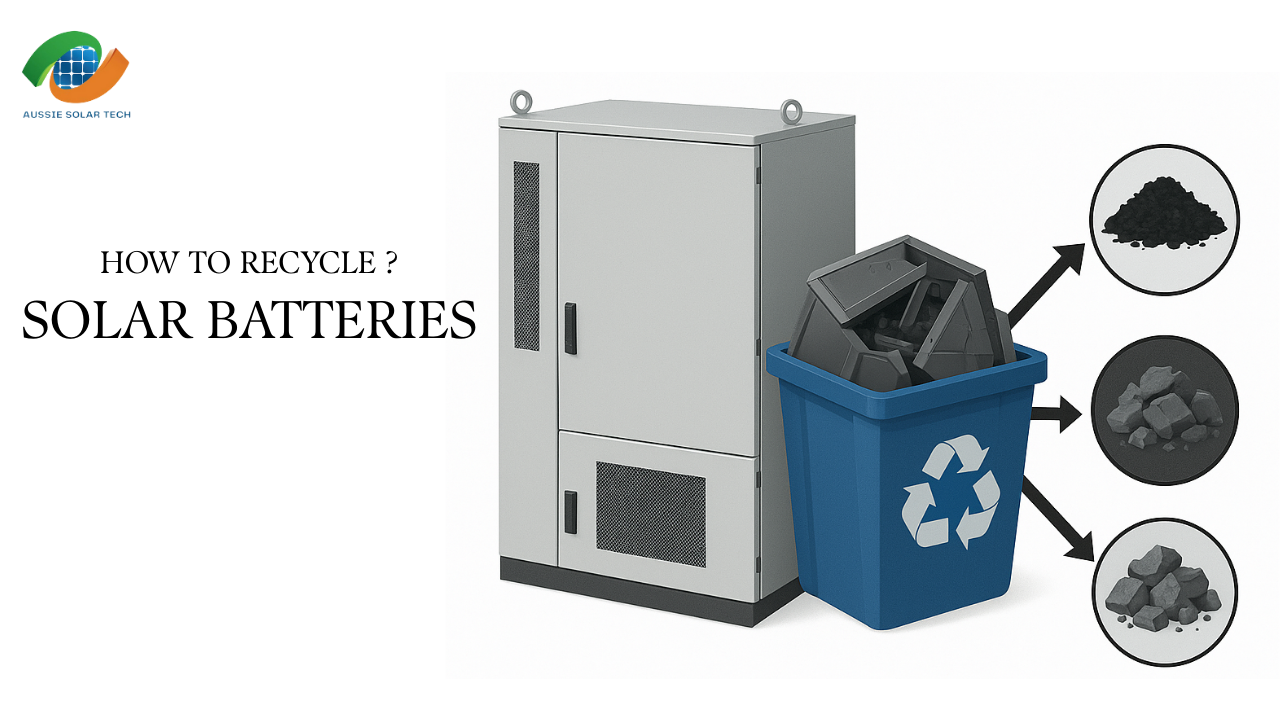
In This Article
ToggleSolar energy is revolutionizing the way we power our homes and businesses in Australia, helping us reduce reliance on fossil fuels. But as more solar battery systems reach the end of their life cycles, one question looms large: What happens to old solar batteries? Solar battery recycling is quickly becoming a critical topic as the world seeks eco-friendly ways to dispose of these energy storage devices.
The solar industry is working to create more sustainable solutions, and the future of solar battery recycling looks promising. In this blog, we’ll explore the current landscape of solar battery recycling, its benefits, and the innovative solutions that are shaping the future of sustainable energy in Australia.
What is Solar Battery Recycling?
Solar battery recycling is a crucial process that ensures old or depleted solar batteries don’t become toxic waste but instead become resources for the future. As solar batteries reach the end of their lifespan, they still contain valuable materials like lithium, cobalt, nickel, and copper—resources that can be extracted, purified, and reused. Recycling begins with collecting the used batteries, then carefully dismantling them to separate reusable components from hazardous elements.
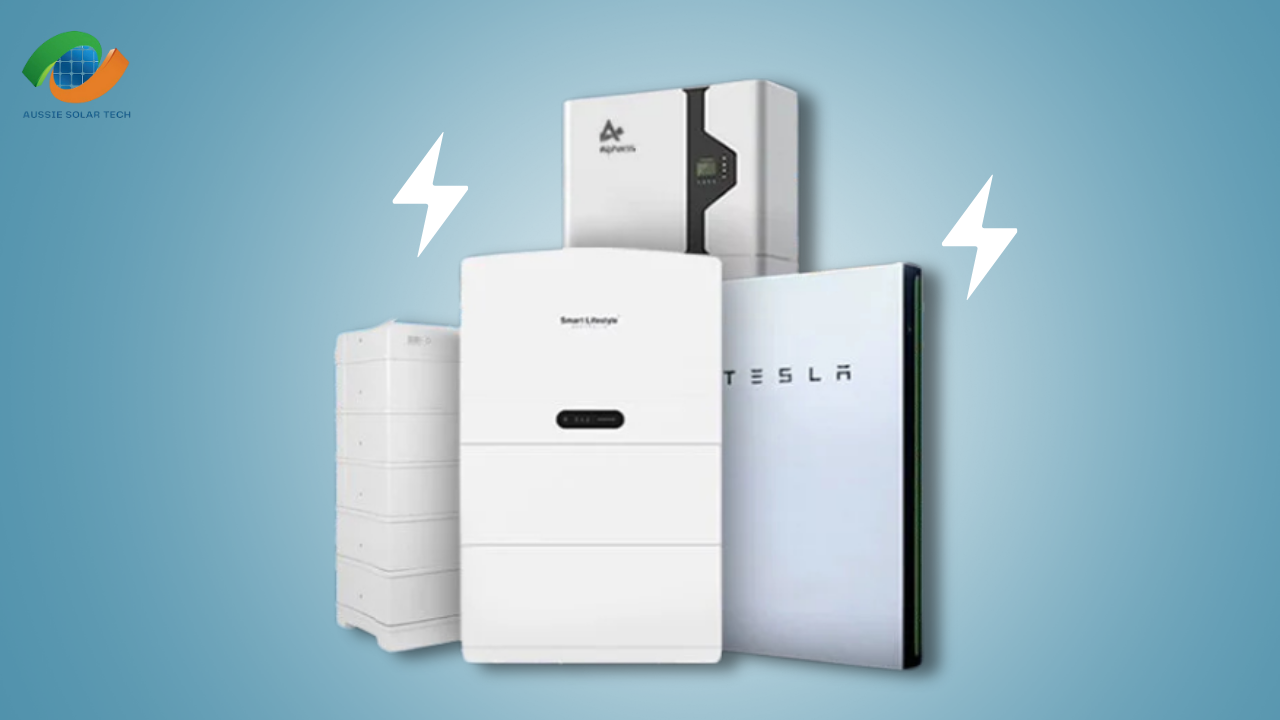
The recovered materials are then fed back into manufacturing, reducing the need for mining and lowering the environmental footprint. More than just waste management, solar battery recycling supports a circular economy, conserves natural resources, and plays a vital role in making clean energy truly sustainable. Without this step, solar power’s promise of a green future remains incomplete.
Why Solar Battery Recycling is Critical
As solar energy adoption grows, so does the demand for solar batteries to store excess power. However, like any battery, solar batteries have a finite lifespan. Most solar batteries last between 10 to 15 years, meaning the first wave of early adopters in Australia will soon face the issue of battery disposal. Without proper recycling methods, old batteries could end up in landfills, causing environmental harm.
1. Environmental Impact of Battery Waste
Batteries, including lithium-ion solar batteries, contain harmful chemicals and metals like lead, cobalt, and nickel. If these materials are not disposed of properly, they can leak into the soil and groundwater, causing significant environmental damage. By investing in eco-friendly battery disposal methods, we can mitigate these risks and ensure that solar energy remains a truly sustainable solution.
2. Recovering Valuable Materials
One of the major benefits of solar battery recycling is the ability to recover valuable materials. Lithium-ion batteries, commonly used in solar systems, contain rare metals that can be extracted and reused. This reduces the need for new mining operations, which have their own environmental footprint. Recycling solar batteries can help Australia and the world build a more circular economy, where valuable resources are reused instead of discarded.
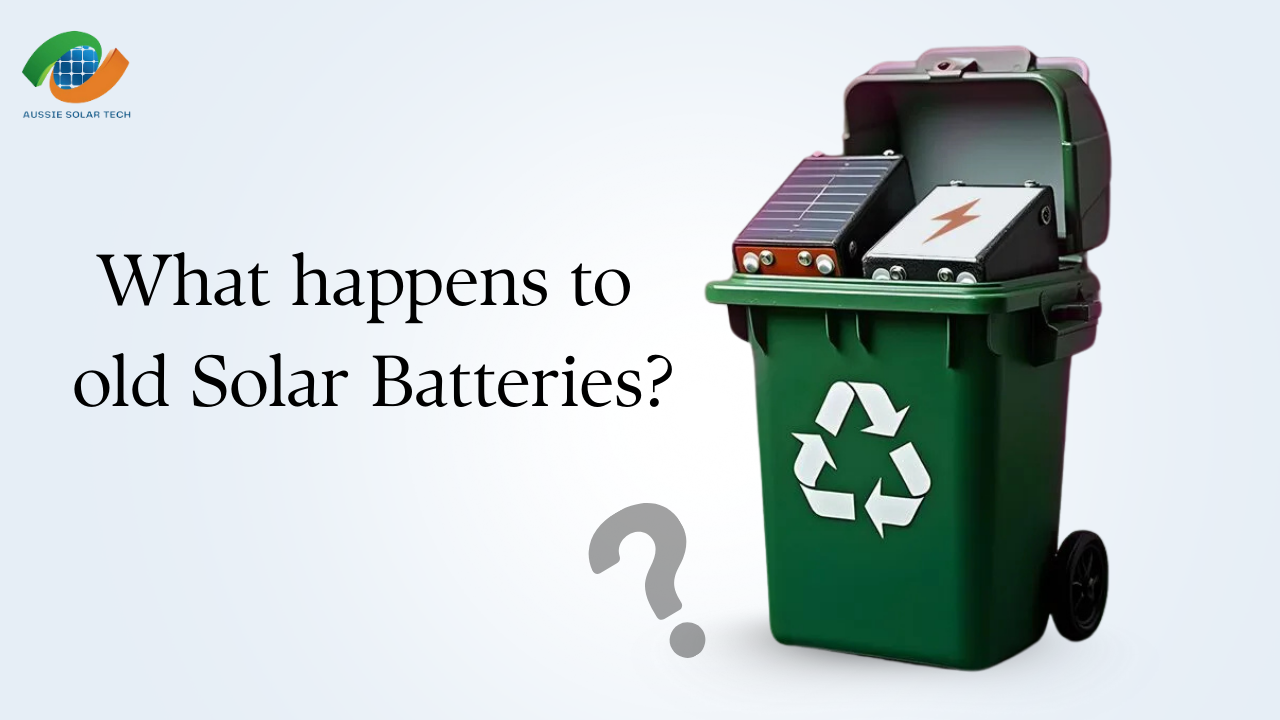
What happens to old Solar Batteries?
What should we do with old solar batteries? Many people don’t realize that these batteries contain valuable materials like lithium, cobalt, and nickel that can be recovered and reused. Through solar battery recycling, these resources can be processed and given a second life—reducing environmental harm and decreasing our dependence on raw material extraction. For solar energy to be truly sustainable, we must also manage the waste it produces. Now is the time to raise awareness and embrace recycling as a core part of a cleaner, greener energy future.
Solar Battery Recycling Process
While solar battery recycling is still in its early stages, there are already processes in place to break down and recycle old batteries. The recycling process typically involves:
- Collection: Old or damaged solar batteries are collected from homeowners and businesses.
- Dismantling: The battery is disassembled, and different components, such as metals and chemicals, are separated.
- Recycling: Metals like lithium, cobalt, and nickel are recovered and purified for reuse in new batteries or other products.
- Safe Disposal: Non-recyclable materials are safely disposed of following environmental guidelines.
Here are the advantages of recycling solar batteries recycling in Australia:
Reduces Environmental Harm: Recycling solar batteries prevents harmful chemicals from entering into soil and water. Improper battery disposal can cause various environmental impacts.
Mitigates Pollution: Recycling reduces the risk of environmental pollution from harmful substances like lead, cobalt, and lithium significantly, contributing to cleaner ecosystems.
Preserves Natural Resources: Solar batteries are made from limited natural resources such as lead, cobalt, and lithium. Therefore, recycling helps in resource conservation, reducing the need for mining.
Saves Raw Material Costs: Recycling could be the best option for manufacturers who want to reduce the production cost of new batteries. It minimizes the demand for new materials, thereby saving on the costs of mining and acquiring raw materials.
Increases Sustainability and Economic Growth: By reusing valuable materials, recycling solar batteries promotes a circular economy. It enhances overall sustainability and reduces reliance on fossil fuels. Reduces the Environmental Impact of Mining Battery production requires mining for raw materials, which ultimately contributes to deforestation, habitat destruction, and pollution. Recycling helps minimize these negative effects by reducing mining.
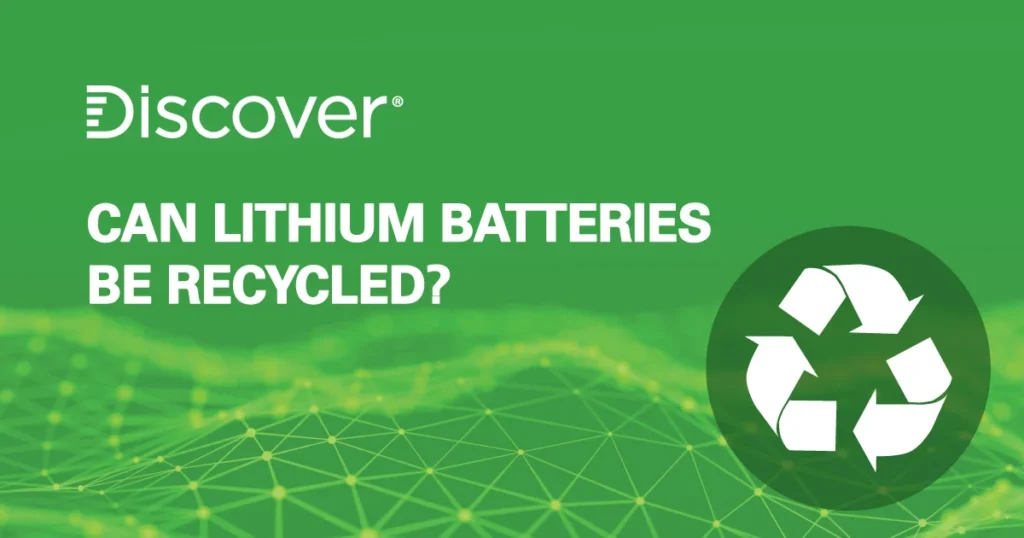
Sustainable Solutions for Solar Battery Recycling in Australia
In Australia, efforts are being made to create a sustainable infrastructure for solar battery recycling. Companies and research institutions are working on innovative methods to ensure that the recycling process is both effective and environmentally friendly. Here are some of the solutions leading the way:
Innovative Recycling Technologies
New technologies are emerging to improve the efficiency of solar battery recycling. For instance, companies are developing advanced methods to extract more materials from old batteries. This includes recovering lithium, which is one of the most valuable components but also one of the hardest to extract. These innovations are helping to reduce the environmental impact of recycling and make the process more cost-effective.
Government Initiatives and Regulations
The Australian government is actively promoting battery recycling through various initiatives and regulations. Programs like the National Battery Stewardship Scheme aim to create a framework for recycling solar batteries and other types of batteries. These regulations are designed to ensure that batteries are recycled responsibly and that valuable materials are recovered, reducing the need for new mining operations.
Industry Collaboration
Collaboration between the solar industry and recycling companies is also playing a crucial role in the future of solar battery recycling. Solar companies are partnering with recycling firms to offer take-back programs, where old batteries are collected and sent for recycling. This ensures that customers have an easy and convenient way to dispose of their old batteries in an eco-friendly manner.
Educational Programs for Homeowners
In addition to government and industry efforts, educational programs are being developed to inform homeowners about the importance of solar battery recycling. Many Australians are unaware of the potential environmental harm caused by improper battery disposal, so raising awareness is key to building a more sustainable future.
Benefits of Eco-Friendly Battery Disposal
As the demand for solar energy continues to grow, it’s essential that we focus on eco-friendly battery disposal to ensure that solar remains a green and sustainable energy source. Here are some of the key benefits of recycling solar batteries:
Economic Opportunities in the Solar Battery Recycling Industry
As the renewable energy sector grows, so do the economic opportunities in recycling. The solar battery recycling industry could create new jobs in collection, logistics, dismantling, and materials processing. This emerging sector holds promise not just for environmental impact but also for regional economic development in Australia.
With government support and private investment, Australia could position itself as a leader in sustainable energy management and resource recovery, turning old solar batteries into valuable assets instead of environmental liabilities.
Growing Demand for Solar Battery Recycling in Australia
As the adoption of solar energy systems continues to rise across Australia, the demand for efficient solar battery solutions has also seen a significant surge. More homeowners and businesses are now installing solar batteries to store excess solar energy and reduce reliance on the grid. However, with this growing trend comes the responsibility of proper solar battery disposal. Without sustainable recycling options, thousands of used solar batteries could pose a serious threat to the environment, defeating the very purpose of switching to green energy.
This is where forward-thinking solutions in solar battery recycling come into play. Government bodies, environmental agencies, and energy companies are investing in infrastructure to manage solar battery waste more effectively. These programs not only aim to reduce pollution but also ensure valuable resources within each solar battery—like lithium and cobalt—are reclaimed and reused. As the country moves towards a cleaner future, making solar battery recycling a national priority is no longer optional—it’s essential.
Reduced Carbon Footprint
Proper recycling ensures that harmful chemicals and materials are not released into the environment. By recycling solar batteries, we can prevent soil and water contamination, reduce greenhouse gas emissions, and minimize the need for new raw materials.
Resource Conservation
Recycling allows us to recover valuable metals like lithium and cobalt, which can be reused in the production of new batteries. This reduces the need for mining, conserving natural resources and minimizing environmental degradation.
Cost Savings for Consumers
As recycling technologies improve, the cost of recycling solar batteries is expected to decrease. This means that consumers may see lower prices for new batteries, as recycled materials become more widely available. Additionally, some government programs offer incentives for homeowners to recycle their old batteries, further reducing the cost of disposal.
FAQ Section
What is solar battery recycling?
Solar battery recycling is the process of collecting, dismantling, and recovering valuable materials from old or damaged solar batteries to prevent them from ending up in landfills.
Why is solar battery recycling important?
Recycling solar batteries is crucial to prevent harmful chemicals and metals from leaking into the environment. It also allows for the recovery of valuable materials like lithium and cobalt, which can be reused in new batteries.
Can all solar batteries be recycled?
Most solar batteries, particularly lithium-ion batteries, can be recycled. However, the recycling process may vary depending on the type of battery. It’s essential to consult a recycling facility that specializes in solar batteries.
How can I recycle my solar battery in Australia?
There are several ways to recycle your solar battery in Australia. Many solar companies offer take-back programs, and there are government initiatives in place to support battery recycling. Check with your local recycling facility or solar provider for more information.
What are the environmental benefits of recycling solar batteries?
Recycling solar batteries helps reduce pollution, conserve natural resources, and lower greenhouse gas emissions. It also contributes to the creation of a circular economy, where materials are reused rather than discarded.
Call to Action: Be Part of the Solution!
Ready to dispose of your old solar battery the eco-friendly way? Contact Aussie Solar Tech to learn more about solar battery recycling options in Australia. Together, we can help protect the environment and ensure a sustainable future for solar energy.

Shah Tarek is a Solar Energy Consultant with 10 years experience in solar system design and solar consultancy field at Australia. He is now a Director, Operation & Consultancy Division at Aussie Solar Tech, a leading Australian solar retailer and installer. Here he is writing informative and engaging solar content that educates the community on the benefits of solar power. His work supports Aussie Solar Tech’s mission to promote sustainable energy solutions and foster a greener future for Australia.














